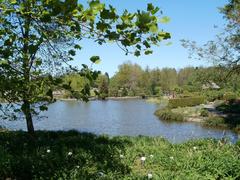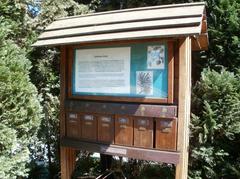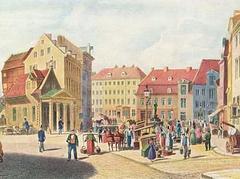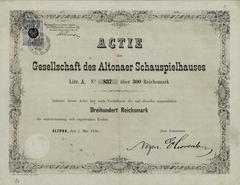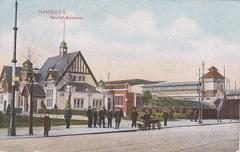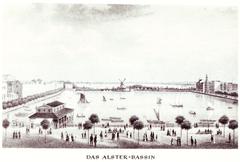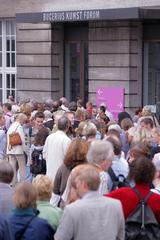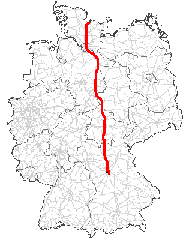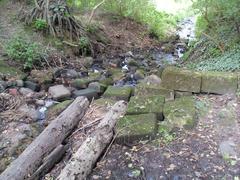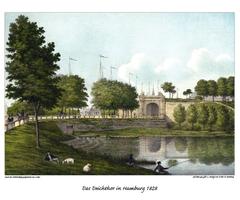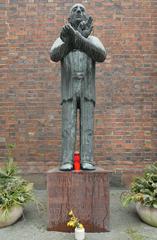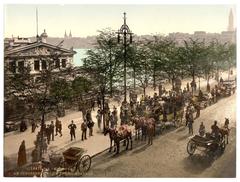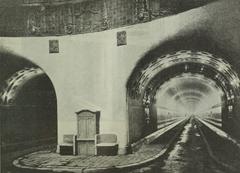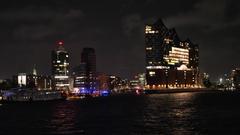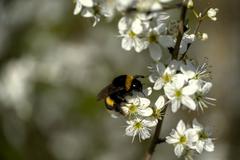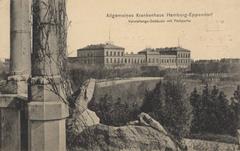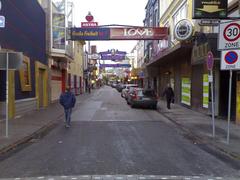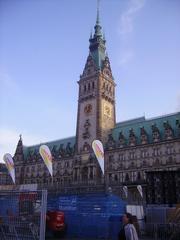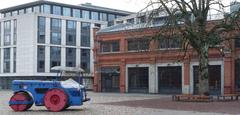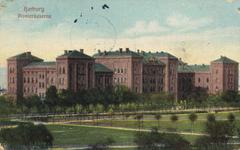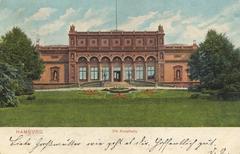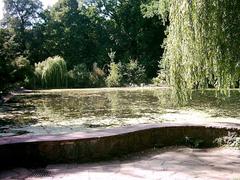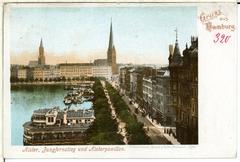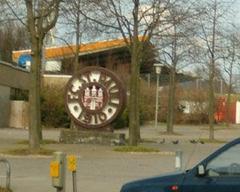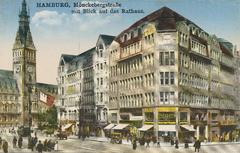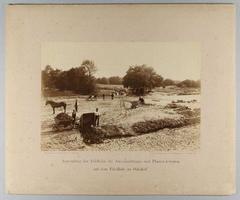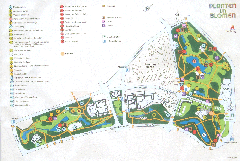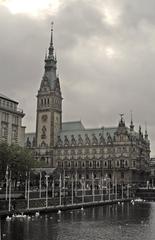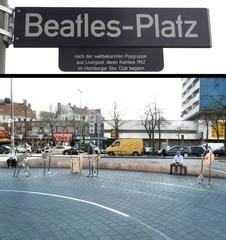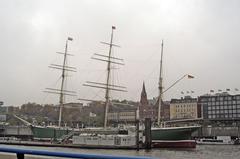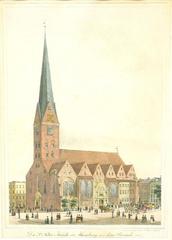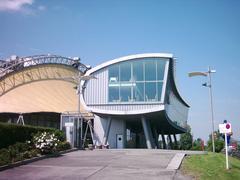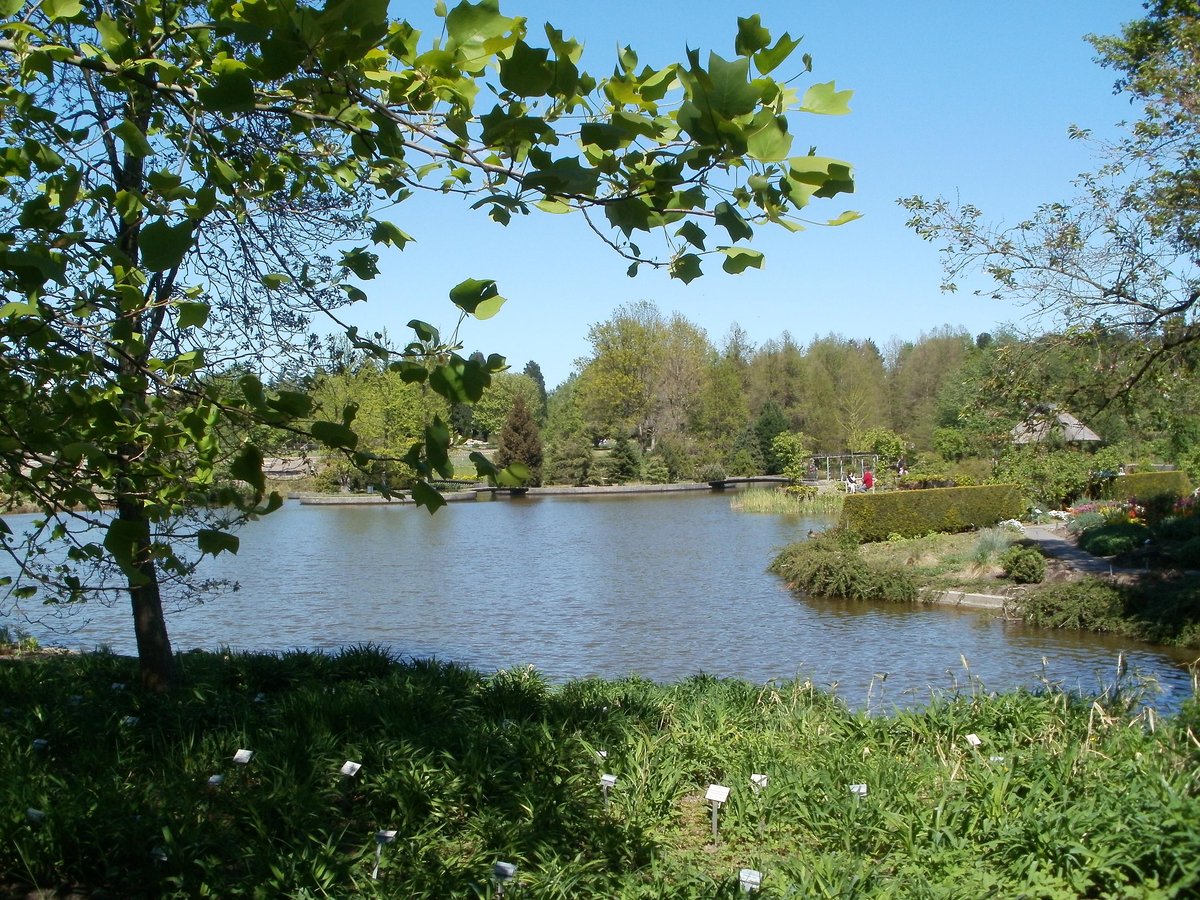
Loki-Schmidt-Garten Hamburg: Visiting Hours, Tickets, and In-Depth Visitor Guide
Date: 15/06/2025
Introduction: Hamburg’s Living Botanical Heritage
Located in the leafy Klein Flottbek district, the Loki-Schmidt-Garten (Hamburg Botanical Garden) is a vibrant destination that merges scientific research, conservation, education, and recreation. Founded in 1821 and affiliated with the University of Hamburg, the 25-hectare garden has evolved from a research-focused site to a public oasis, home to over 14,000 plant species. Since 2012, it honors Hannelore “Loki” Schmidt, the renowned botanist and environmentalist, whose legacy is reflected in the garden’s mission to promote plant conservation and environmental awareness (Loki Schmidt Stiftung).
Whether you’re seeking a peaceful stroll, hands-on educational activities, or insight into rare plant conservation, this comprehensive guide will help you plan your visit. Here, you’ll find up-to-date details on visiting hours, ticketing, accessibility, garden highlights, and travel tips.
Historical Overview and Significance
The garden’s origins date back to 1821, when it was founded in Hamburg’s city center to support the university’s botanical research. As Hamburg grew, the garden relocated in 1979 to Klein Flottbek, expanding its collections and modernizing its facilities (Universität Hamburg). Today, it stands as a living museum, fostering research, conservation, and public engagement.
In 2012, the garden was renamed after Loki Schmidt, whose lifelong commitment to environmental education and plant protection shaped its ethos (Loki Schmidt Stiftung).
Visiting Information: Hours, Tickets, and Getting There
Opening Hours (2025)
- Summer (June–August): 9:00 AM – 8:00 PM
- Spring/Autumn (March–May, September–October): 9:00 AM – 6:00 PM
- Winter (November–February): 9:00 AM – 4:00 PM
- Closed: December 24 & 31 and during extreme weather (storms/ice)
- Last entry: 30 minutes before closing
For holiday hours and event-specific openings, consult the official visitor information.
Admission
- Entry: Free for all visitors, reflecting the garden’s commitment to accessible education and recreation.
- Donations: Voluntary contributions are welcome at designated boxes and help support garden upkeep.
Directions and Transport
- Public Transport: S1/S11 trains to Klein Flottbek station; a short walk to the main entrance on Ohnhorststraße.
- Bus: Lines 21, 115 stop nearby.
- Car: Limited parking at Landspatz and near the station (Landspatz). Public transport is recommended.
- Bicycle: Designated racks available at the entrance.
Accessibility
- Paths: Most major routes are barrier-free, suitable for wheelchairs, strollers, and rollators.
- Restrooms: Accessible toilets are located near main entrances and key areas.
- Facilities: Benches, picnic spaces, and clear signage throughout.
Garden Structure: Themes and Special Features
The Loki-Schmidt-Garten is divided into thoughtfully curated sections, each offering a distinctive botanical and educational experience:
Systematic Garden
- Demonstrates plant evolution and classification through more than 3,000 species in 75 beds.
- Informative signage details evolutionary relationships, ideal for students and enthusiasts.
Geographical Garden
- Features plant communities from Europe, North America, East Asia, and the Mediterranean.
- Landscaped to mimic natural habitats—walk from alpine meadows to bamboo forests and redwood groves.
Plant and Man Garden
- Explores human-plant relationships: medicinal and poisonous plants, culinary herbs, crops, and ornamentals.
- Interactive and educational, perfect for families and school groups.
Special Collections
- Alpine Garden: Rare mountain flora in a rock garden.
- Arboretum: Global tree and shrub collection, including ginkgo and dawn redwood.
- Water and Wetland Gardens: Aquatic habitats, water lilies, and iris beds.
- Japanese and Chinese Gardens: Authentic landscaping, bamboo groves, and tranquil water features.
- Children’s Area: Hands-on educational displays and play zones (Loki-Schmidt-Garten).
Events, Tours, and Educational Programs
Guided Tours & Workshops
- Regular expert-led tours (March–October), available in German and English.
- Themes include native/exotic plants, bionics, plant naming, insect diversity, and indigenous uses.
- Workshops on plant identification, sustainable gardening, and creative nature writing.
- Children’s tours run parallel to adults’ programs.
Public Events
- Annual highlights: Orchid Exhibition, “Tag der Wüste” (Desert Day), Apple Days, and plant markets.
- Christmas Garden Hamburg: Mid-November to early January, the garden transforms into a two-kilometre illuminated trail with light installations (Christmas Garden Hamburg). Admission fee required for this event.
School and Community Outreach
- Educational partnerships with local schools; interactive programs and free plant materials.
- Community workshops and public lectures promote environmental stewardship.
Conservation & Scientific Initiatives
- Active in ex-situ conservation, maintaining rare and endangered species, especially from northern Germany and Europe.
- Collaborates internationally through seed exchange, habitat restoration, and climate research (BGCI PlantSearch).
- Integral part of the University of Hamburg’s research and teaching missions.
Visitor Amenities
- Café Schmidtchen Palme: Accessible café offering cakes, coffee, tea, quiche, and ice cream with indoor/outdoor seating (Landspatz).
- Picnic Areas: Bring your own food to enjoy on lawns or benches.
- Rest Areas: Benches and shaded spots throughout.
- Regulations: No dogs (except guide dogs), no bicycles inside the garden (Botanischer Garten Hamburg).
Nearby Attractions
- Jenischpark: Adjacent historic park, ideal for extended walks or picnics.
- Ernst Barlach Haus: Museum within Jenischpark.
- Museum für Völkerkunde Hamburg: Not far from the garden, with ethnological collections.
- Hirschpark: Park with deer enclosures and playgrounds.
- Elbstrand: The Elbe river beach for scenic relaxation (Hamburg.de).
Seasonal Highlights
- Spring: Alpine and Japanese gardens burst into bloom.
- Summer: Extended hours, lush displays, vibrant rose and prairie gardens.
- Autumn: Rich foliage, fruit harvests, and thematic events.
- Winter: Quiet walks, winter-interest plantings, and the magical Christmas Garden.
Frequently Asked Questions (FAQs)
Q: What are Loki-Schmidt-Garten’s visiting hours?
A: Open daily from 9:00 AM; closing varies seasonally (4 PM winter, 6 PM spring/autumn, 8 PM summer).
Q: Is there an entry fee?
A: No, entry is free; donations are appreciated.
Q: Are dogs allowed?
A: Only guide dogs are permitted.
Q: Is the garden accessible for wheelchairs and strollers?
A: Yes, most paths and facilities are barrier-free.
Q: Are guided tours available?
A: Yes, regular tours and workshops are offered March–October.
Q: Where can I get food or drinks?
A: At Café Schmidtchen Palme on site.
Q: Can I take photographs?
A: Yes, personal photography is welcome; professional shoots require permission.
Q: How do I get there by public transport?
A: S1/S11 to Klein Flottbek station, then a short walk.
Practical Tips for Your Visit
- Dress appropriately for outdoor conditions; most areas are open air.
- Wear comfortable shoes—some paths are gravel or natural soil.
- Download maps and barrier-free routes ahead of time.
- For large groups or school visits, register in advance.
Visual and Interactive Resources
- Explore virtual tours and high-quality images to preview the garden.
- Interactive maps and QR-coded guides enrich your on-site experience.
Conclusion: Plan Your Visit to Hamburg’s Botanical Landmark
Loki-Schmidt-Garten is more than just a botanical garden—it’s a sanctuary for biodiversity, a hub for learning, and a reflection of Hamburg’s dedication to environmental stewardship. With free entry, educational programs, barrier-free access, and proximity to other city attractions, it promises a rewarding experience for visitors of all ages and interests.
For the latest updates on events, hours, and accessibility, visit the official Botanischer Garten Hamburg website. Download the Audiala app for guided audio tours and follow the garden’s social media to stay informed about workshops, exhibitions, and conservation news.
We look forward to welcoming you to Loki-Schmidt-Garten—Hamburg’s living celebration of botanical diversity!
